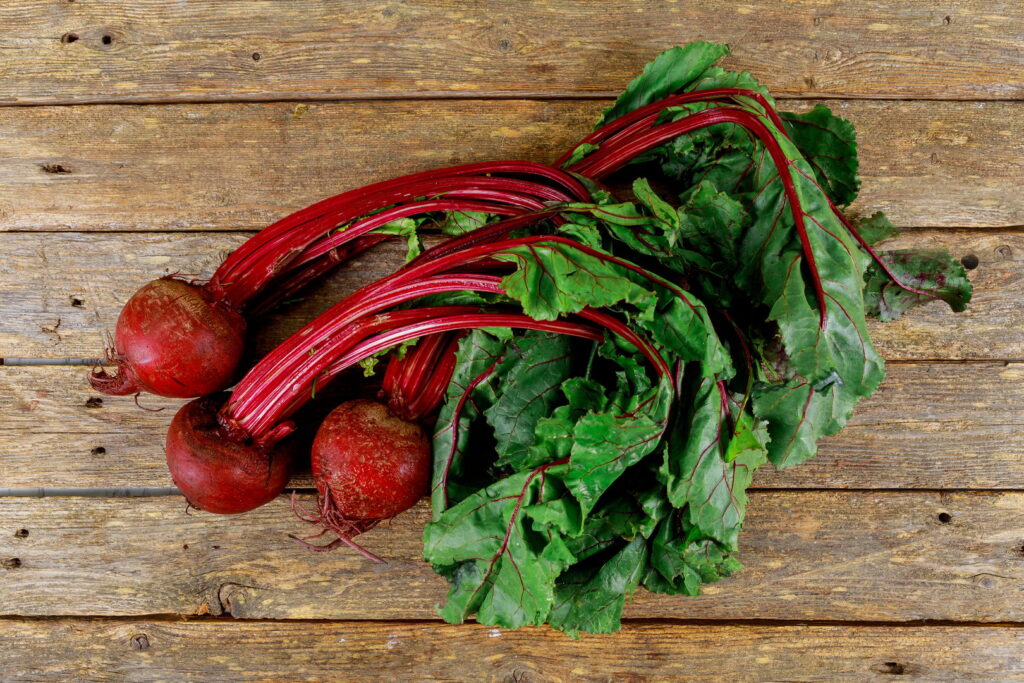
Beets are known for their earthy sweetness and vibrant color, but there’s more to these root vegetables than meets the eye. When pickled, beets not only gain a delicious tanginess but also boast an impressive array of health benefits. In this blog post, we’ll explore the myriad health advantages of pickled beets and provide you with some tips on how to incorporate them into your daily diet.
Rich in Nutrients
Beets are a nutritional powerhouse, packed with essential vitamins and minerals. The pickling process doesn’t diminish these nutrients, making pickled beets an excellent source of:
Folate: Essential for DNA synthesis and cell division, folate is particularly important for pregnant women to prevent neural tube defects in their unborn children.
Manganese
This trace mineral plays a crucial role in bone health, blood sugar regulation, and antioxidant function.
Potassium
A vital electrolyte, potassium is necessary for maintaining proper muscle function and regulating blood pressure.
Vitamin C
An antioxidant, vitamin C helps to neutralize free radicals, supports a healthy immune system, and aids in collagen production.
Enhances Athletic Performance
The high nitrate content in beets can improve athletic performance by increasing the efficiency of mitochondria, the powerhouses of your cells. Nitrates are converted into nitric oxide in the body, which can widen blood vessels, improve blood flow, and reduce the amount of oxygen needed during exercise. Consequently, athletes who consume pickled beets may experience increased stamina, reduced fatigue, and faster recovery times.
Supports Heart Health
The combination of nitrates, potassium, and antioxidants in pickled beets can help maintain a healthy heart. Nitric oxide can reduce blood pressure by relaxing the blood vessels, while potassium helps to counteract the harmful effects of sodium. Antioxidants in pickled beets, such as betalains and vitamin C, can help to reduce inflammation and oxidative stress, which are known risk factors for heart disease.
Boosts Digestive Health
Pickled beets are a good source of dietary fiber, which is essential for maintaining a healthy digestive system. Fiber helps to regulate bowel movements, prevent constipation, and support a healthy gut microbiome. Furthermore, pickled beets are a probiotic-rich food due to the fermentation process. Probiotics are beneficial bacteria that can improve gut health, boost the immune system, and support overall well-being.
Aids in Detoxification
Beets are rich in compounds called betalains, which have powerful antioxidant and anti-inflammatory properties. These compounds support the liver in its detoxification process by neutralizing toxins and promoting their elimination from the body. Including pickled beets in your diet can, therefore, contribute to a healthier, more efficient liver. You can buy pickled beets at most grocery stores and there are lots of recipes online you can try (we’ll be adding a few recipes to the site soon ourselves so stay tuned).
How to Incorporate Pickled Beets into Your Diet
• Toss them into your salad for a pop of color and tangy flavor.
• Add them to sandwiches or wraps as a zesty condiment.
• Serve them as a side dish with grilled or roasted meats.
• Blend them into a smoothie for an extra nutritional punch.
• Make a pickled beet and goat cheese appetizer for a delicious and nutritious snack
Pickled beets are a versatile, tasty, and nutritious addition to your diet that can provide numerous health benefits. From enhancing athletic performance to supporting heart and digestive health, these tangy treats are a delightful way to boost your well-being. As an excellent source of essential vitamins, minerals, and antioxidants, pickled beets should not be overlooked. Embrace the vibrant colors and flavors of this superfood to add variety and nutrition to your meals while reaping the rewards of a healthier, more balanced lifestyle.

Leave A Comment